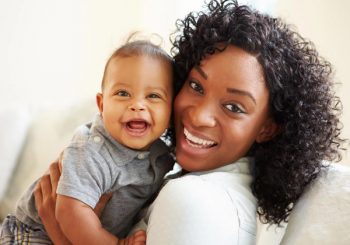Staff Writer for Wake Up World
A study published in Emotion, the American Psychology Association’s peer-reviewed journal, indicates that those who experience greater happiness during childhood are more likely to be successful as adults. The author of the study, John K. Coffey II, is an assistant professor of psychology at Sewanee: The University of the South, located in Tennessee. He earned a Ph.D. in positive developmental psychology from Claremont Graduate University in California. (1, 2)
The Fullerton Longitudinal Study
To complete his research, Coffey pulled data from the Fullerton Longitudinal Study (FLS). The FLS is a four-decade study of human development, beginning in infancy and continuing through adulthood. (1, 3, 4)
The FLS began in 1979 with a group of 130 one-year-olds. These children were directly assessed at 6-month intervals throughout their infancy and preschool years, annually during their school years, and at the ages of 24, 29, and 38. (4)
In addition to the direct assessment of the children (now adults), researchers also collected information from their parents and teachers. Parents completed a variety of questionnaires and inventories from infancy through childhood. Teachers completed a standardized student functioning checklist during each grade of elementary school. (4)
The FLS’s main areas of focus are long-term relations and trajectories during human psychological development. However, other themes of the study include (4):
- home and family environment
- motivation and academic competence
- temperament and personality
- intellectual and motivational giftedness
- maternal and dual-earner employment
- early predictors of everyday leadership, success, happiness, and life-satisfaction
During the investigation, no fewer than 80% of participants returned for any single assessment. Due to the length of the study, participants now live throughout the United States as well as in other countries. (4)
Happiness Predicts Success
In his study, Coffey examined the following:
- The questionnaires completed by parents when the study participants were 18 months old. In particular, parents answered questions about how often the babies expressed positive or negative emotions.
- The IQ tests given to the participants at 18 months by researchers
- The IQ tests given to the participants between the ages of 6 and 8
- The 29-year-old assessments, in which participants reported on their life satisfaction and educational attainment (1, 3)
Coffey found a link between infant positive emotions and higher childhood cognitive abilities, as measured by IQ. Additionally, babies who were happier had higher growth in their IQ scores between infancy and childhood. This suggests that the happier babies learned more during that time. (1, 3)
There was also a connection between positive emotions displayed by infants and educational success at the age of 29. Neither of these links were explained by socioeconomic status or IQ during infancy. Happier babies were more likely to graduate from high school and college regardless of their parents’ wealth or their own IQ scores during infancy. (1, 3)
Also of note is that participants who were happier babies reported greater life satisfaction at the age of 29. This was true regardless of their socioeconomic status or IQ. (3)
What Makes a Happy Child?
If a happy childhood leads to success, it stands to reason that parents would want to help their children experience as much joy as possible. Coffey notes that in his study, adult success and happiness were determined by how often children experienced happiness, not how intensely they experienced the emotion. (3)
This means that parents should focus more on creating everyday positive emotions, like playing together or sharing a new experience, rather than putting a lot of effort into intensely joyful experiences. The best birthday party or holiday celebration ever is not what predicts future outcomes for children. It’s about cultivating a happy life every day. (3)
Article sources:
- https://www.ncbi.nlm.nih.gov/pubmed/31259588
- http://www.johnkcoffey.com/about.html
- https://blogs.scientificamerican.com/observations/happier-babies-have-an-edge/
- http://psych.fullerton.edu/fls/AboutFLS.html
About the author:
Amelia Harris is a writer and eco-activist, interested in health and all things esoteric, with a passion for sharing good news and inspiring stories. She is a staff writer for Wake Up World.

If you've ever found value in our articles, we'd greatly appreciate your support by purchasing Mindful Meditation Techniques for Kids - A Practical Guide for Adults to Empower Kids with the Gift of Inner Peace and Resilience for Life.
In the spirit of mindfulness, we encourage you to choose the paperback version. Delve into its pages away from screen glare and notifications, allowing yourself to fully immerse in the transformative practices within. The physical book enriches the learning process and serves as a tangible commitment to mindfulness, easily shared among family and friends.
Over the past few years, Wake Up World has faced significant online censorship, impacting our financial ability to stay online. Instead of soliciting donations, we're exploring win-win solutions with our readers to remain financially viable. Moving into book publishing, we hope to secure ongoing funds to continue our mission. With over 8,500 articles published in the past 13 years, we are committed to keeping our content free and accessible to everyone, without resorting to a paywall.







